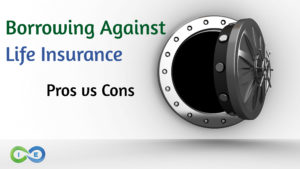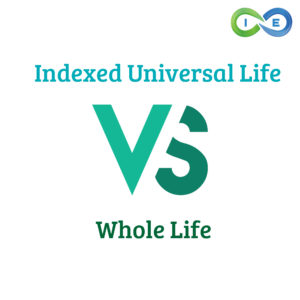As the saying goes…
“the only thing that is truly permanent is CHANGE”
Which is why we here at I&E understand what there are a lot of reasons that an individual may want to consider “canceling” or “cashing out” his or her whole life insurance policy.
“But is that always a good idea?”
And if so, how does one actually go about doing it?
These are just…
A few of the questions that we hope we’ll be able to shed light on during this discussion today, because the last thing that we would like to see anyone is make a quick and rash decisions about cancelling their whole life insurance policy without fully understanding all of the implications.
The good news is…
That because we here at I&E are very familiar with cash value whole life insurance policies, not only will we be able to explain how one can go about “canceling” such a policy, we may also be able to provide you with some options which could potentially improve your financial situation.
So, without further ado, let’s dive right in!
You may also be interested in, “what happens if you stop paying whole life insurance premiums“
Cashing Out Whole Life Insurance
Financial circumstances are subject to change over time, making it important to reevaluate your financial plans on a regular basis. In some cases, doing so can call into question the financial commitments you have made to existing financial products such as a whole life insurance policy.
Perhaps your monthly income has dropped, and you want to reduce your expenditures, or you find that you no longer need as much protection in the form of an insurance death benefit as you once did.
While you can cancel your whole life policy outright, this may not be the optimal strategy in the long run. There are a variety of options short of terminating a policy that you may want to consider before taking such a step.
Availing yourself of such an option can be especially attractive if you would like to retain some parts of your policy, such as the death benefit, or the ability to grow funds in the cash account on a tax-deferred basis.
Options short of a full termination of your whole life policy include:
Partial surrender:
If your main objective is to access some portion of the cash value of your policy, you can withdraw cash from the policy via what is known as a partial surrender.
If you use this option, be aware that this will likely reduce the policy’s death benefit. The advantage, of course, is that you get to retain at least some death benefit insurance coverage rather than losing it all.
Take out a policy loan:
If you want to access funds from your policy’s cash account but don’t want to reduce the death benefit, using your cash value as collateral and borrowing against your life insurance is an option. While the insurance company will charge interest on the loan, you can use the remaining cash in the account or any policy dividends to pay this interest.
You should be aware that if you have an outstanding loan and the policy lapses, it can have tax consequences, including the potential creation of a tax liability due to “phantom income.” Because of this, policy loans should only be taken if you are confident that interest payments on the loan will be made.
Lock-in a reduced death benefit:
If there is enough cash in your cash value account you can “pay-up” the policy so that no further premium payments need to be made, while the new, reduced death benefit amount is guaranteed for life. When paid-up life insurance option is selected, the policy can continue to gain cash value as well as see the death benefit increase over time.
Sell the policy to a firm that offers life settlements:
Life settlements might be a great option as you may receive more than the cash surrender value of the policy. This opportunity is generally available mainly for individuals in the last years of their life, with a life expectancy of from 5 to 10 years.
Surrender Charge
Another factor to consider if you are thinking about cancelling a whole life insurance policy is the existence of any surrender charges or surrender fees related to withdrawing your cash balance.
To make sure they can recoup the insurance costs associated with a policy, some insurance companies entirely prohibit cash withdrawals in the early years after a policy’s purchase, so that you would get none of the cash value if you cancelled the policy during that time, while others charge a declining surrender fee on withdrawals from the cash account.
These fees may last anywhere from 3 years, 5, 10 and 20 years after a policy’s purchase, and often decline over time.
For example, you might pay a 5% penalty on any withdrawals in year one, declining to 3% in year two, and to 1% in the 9th year, with no penalty on withdrawals thereafter.
How to Cancel a Whole Life Insurance Policy
To cancel a whole life insurance policy, you should contact the agent or insurance company which sold it to you and find out what steps need to be taken.
Unlike term life, if you just stop making payments this won’t necessarily cancel a cash value life insurance policy. This is due to what are known as “nonforfeiture clauses.”
Nonforfeiture Clauses
If you are past the surrender period phase of your whole life contract and have missed a premium payment these nonforfeiture clauses can be triggered, preventing immediate policy cancellation.
In such cases, the insurance company may automatically take action to keep the policy in force or offer you options to do so.
These non-forfeiture clause options typically include:
- Retaining the death benefit but for a shorter period of time
- Taking the full cash value from the policy
- Allowing the policy to stay dormant for a period of time and then resuming payments at a later date
- Keeping the cash value in the policy while reducing the death benefit
- Converting the cash value into term life insurance
Nonforfeiture clauses are designed to keep a policy in force, so they may not be relevant if you simply want to cancel your life insurance policy.
However, if that is not your goal these options can be a good way to make changes to a policy that enable you to keep at least some portion of in force.
Cancelling Your Whole Life Insurance Policy
Factors to Consider
When you cancel whole life insurance, there are a variety of consequences, both in terms of the direct impact and with regard to purchasing a new life insurance policy should you choose to do so.
Funds that you withdraw from a life insurance policy are tax-free up to the level of your basis (how much you have contributed to the policy). Anything over that is subject to taxes. Thus, it is important to take into consideration any potential tax impact when cancelling a policy.
Another factor to consider is whether you intend to purchase a new life insurance policy at some point. A 1035 exchange life insurance option should always be considered.
If you can simply get a superior policy that has additional benefits, such as long term care or chronic illness riders, this might be the better route to take.
Also note, whole life insurance offers level premium payments over the life of the policy, meaning that as you get older there is no increase in payments as would be the case if you were buying term insurance later in life.
As a result, if you cancel your whole life policy and later attempt to buy a new policy, whether term or whole life, you will need to take a health exam as part of the application and your premiums may be higher (considerably so if your health is not good) than your existing premium payments on your current whole life insurance plan.
Deciding Whether to Cancel Your Whole Life Insurance
When a whole life insurance policy is cancelled, it is often early in the lifespan of the policy – somewhere within the first 1 to 10 years.
If your financial situation has changed since you purchased a whole life policy and you purchased the policy relatively recently, the cash surrender value in the policy is likely to be minimal, meaning that it may not be practical to use one of the nonforfeiture options mentioned above.
Now, if you’ve owned the policy long enough for significant cash value to accumulate, making changes to the policy rather than cancelling it outright may be the better option if you’d like to retain some of its benefits.
Also, if you want to terminate a policy to access the cash value, but plan to use a portion of that cash to purchase a new insurance policy, the question to ask is whether it would in fact be more economical to instead either:
- Do a 1035 Exchange
- Partially withdraw the cash value and establish a lower death benefit with your existing whole life policy, or
- Take out a policy loan
So, if you need less insurance coverage, the first option could be the preferred way to go, as it may be that the cost of purchasing new insurance with a lower death benefit would be more expensive than simply reducing the death benefit of your current whole life policy.
And, if you would like to retain the current death benefit coverage level, a policy loan can be a way to access your cash surrender value without reducing coverage.
When taking a policy loan, you maintain maximum flexibility; if you don’t repay the loan, it will typically reduce the death benefit when the policy is paid out, but if you are able to make timely payments on the loan the death benefit remains the same.
Thus, if your need for cash from your policy is short-term, it may be more advantageous to access that cash via a policy loan rather than terminating the policy and losing the death benefit in the process.
Finally, if you are considering using a portion of the cash value from cancelling your whole life policy to buy term life insurance while investing the remainder, one factor to take into account is the tax-favored status of a whole life insurance policy.
Because your whole life policy’s cash value account grows tax-deferred, funds held in the account will experience greater growth over time, all other factors being equal.
Now…
It’s fair to say that we’ve just gone over a lot of options here in a relatively short amount of time. And while we understand that in doing so, we run the risk of confusing some individuals even more than when they first started reading this article.
But don’t fret…
The last thing that we expect anyone to be after reading this article is an “expert”. All we hope that you “takes away” from reading this article is that if you’re thinking about canceling your cash value whole life insurance policy you’re going to want to speak to an expert before doing so.
This way…
You can review all of your options before making any decisions and hopefully you’ll be able to improve your financial situation while maintaining any and all insurance needs that you may still have.
So, what are you waiting for? Give us a call today and see what we can do for you!





